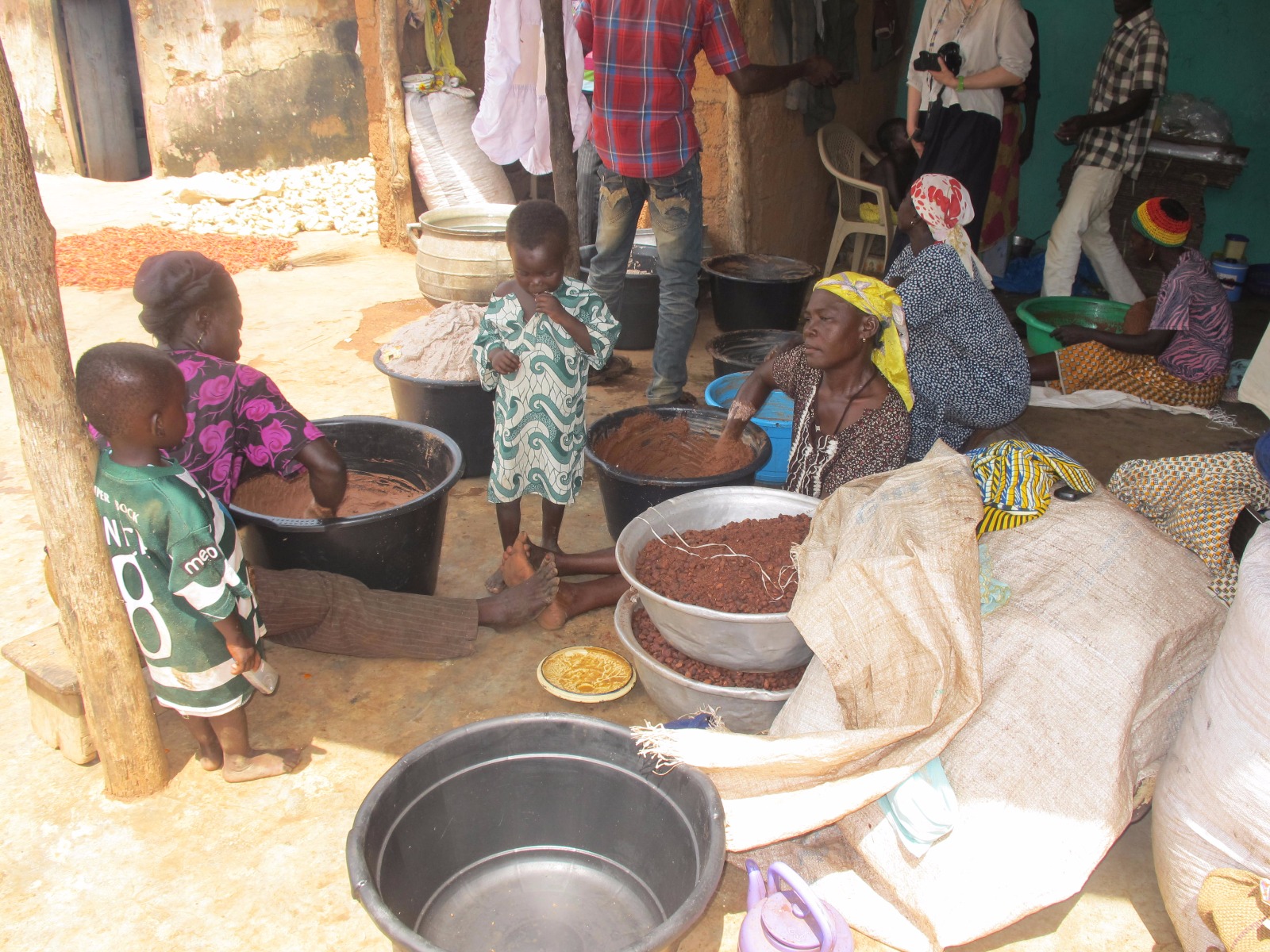Fair trade Shea Butter
Philippe Monmarch of BIONAT CONSULT has known the cultivation and marketing of shea butter in West Africa for decades. Philippe Monmarch of BIONAT CONSULT has known the cultivation and marketing of shea butter in West Africa for decades. In the 70s and 80s, he trained women’s communities for a development aid organization of the UN (PNUD). Together with local partners, he organized the import of fair trade shea butter to Europe and America.
His motivation was observing other fair trade shea initiatives in the region, whose benefits to the people were usually very limited.

There are no shea plantations yet, so all shea butter is harvested from the wild. While other projects pay the women harvesters up to four times the usual market price, they do not have a large effect on the local population’s living conditions because of the small volume. This is because these projects are limited to organic shea butter. This sounds good at first. However, a closer look reveals the problems of organic certification, which is very positive in Europe but has a darker side in the Third World.
In order to declare shea butter organic, one must prove that it is free of pesticides and other harmful substances (which, by the way, BioNat also ensures for the conventional shea butter sold here.) In addition, extensive documentation and certification requirements must be met. These are hardly affordable for the poorest of the poor. On top of inefficient logistics, non-professional administration, and a lack of marketing know-how, there’s still a very small trade volume. The product shea butter, which everyone in Africa knows, is a niche product here, a high-priced exotic cosmetic sold in some organic stores.
The majority of West African women who produce only conventional shea butter could not benefit from these programs. They remained in the clutches of unscrupulous local traders. As a result, poverty and child labor were still the order of the day. In a country like Ghana, organic products—even with the best intentions—can be very unfair.

So Philippe took a different route. Together with his local socially-committed partners, he has made agreements with small groups of women for the delivery of shea butter. The volume of delivery depends on how much the women can provide, and the payment is based on what they need to support themselves and their families and to send their children to school. For the women, this means a steady, regular income. There are additional bonuses for good quality, delivery as arranged, and additional tasks like packaging, loading, and documentation. Not for larger quantities! In this way, the women are protected from the sometimes violent fluctuations in world market prices. It’s also important to pay a truly fair price and to set reasonable quantities. Too-high prices can create false incentives, which then stand in the way of sustainable development. Additionally, payment is made in advance so that even families without reserves can benefit from the program. All necessary resources such as equipment, packaging, and training are provided free of charge to ensure a high-quality product.

The processes at BIONAT are highly efficient and streamlined. Philippe has brought all his knowledge of professional trade in natural ingredients. This lets the trade margins remain low. The goal is to market fairly-produced shea butter to the cosmetics and food industries in relevant quantities and at market price. Many people have already consumed shea butter without knowing it: as an ingredient in skin creams or in the frosting on chocolates.
This model has been working well for over 24 years and is making a significant contribution to combatting poverty. Meanwhile, the initiative is extending to Ghana, Burkina Faso, and the Ivory Coast. More than 2,000 women earn most of their livelihood by producing our Fair Shea butter, allowing them to feed and educate their children!
Philippe is especially proud that long before the rise of microcredit and similar programs, he recognized that the best lever for development in Africa is to enable women to build up their own sustainable professional existence.
The Fair Shea initiative, founded by the French company BIONAT CONSULT (Philippe being one of the partners) and the German cybermerchant l-carb-shop, now hopes to extend the market for shea butter by selling fair-trade shea butter directly to the end customers.
The efficiency of online trade offers the opportunity to pay the producers in Africa fairly while still offering end customers a reasonable price.
Shea butter has won us over, and we are sure it will find its way into many cosmetics and handbags!
That’s why our concept does not include elaborate marketing campaigns, seemingly-attractive discount programs, or a lot of online advertising. We would like to convince customers with a great product at a fair price. And then we hope that our customers can help by recommending us.
